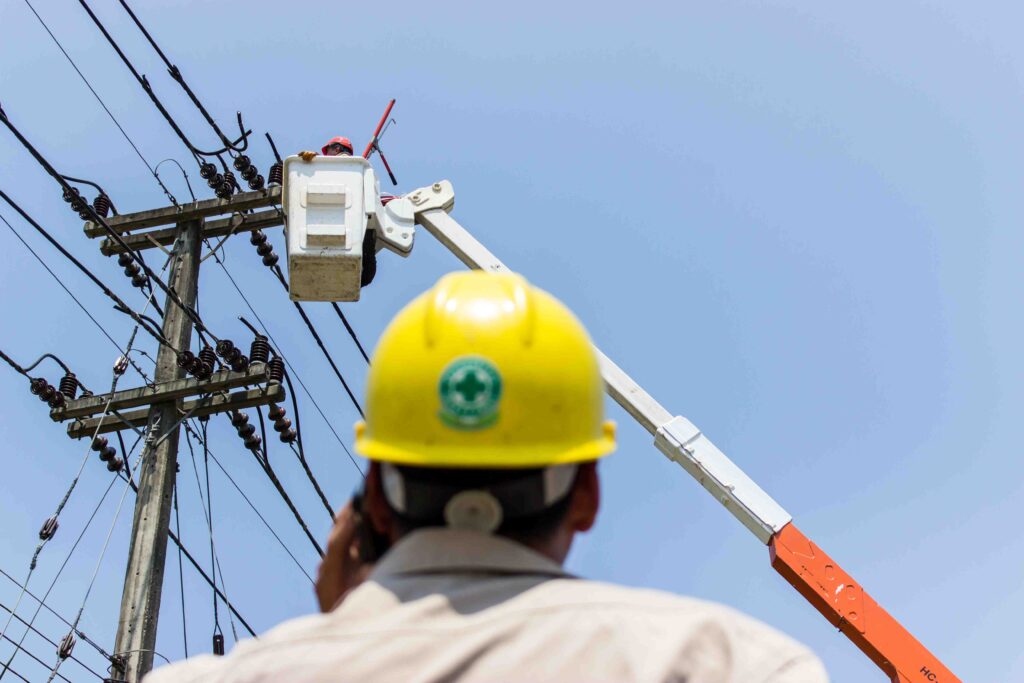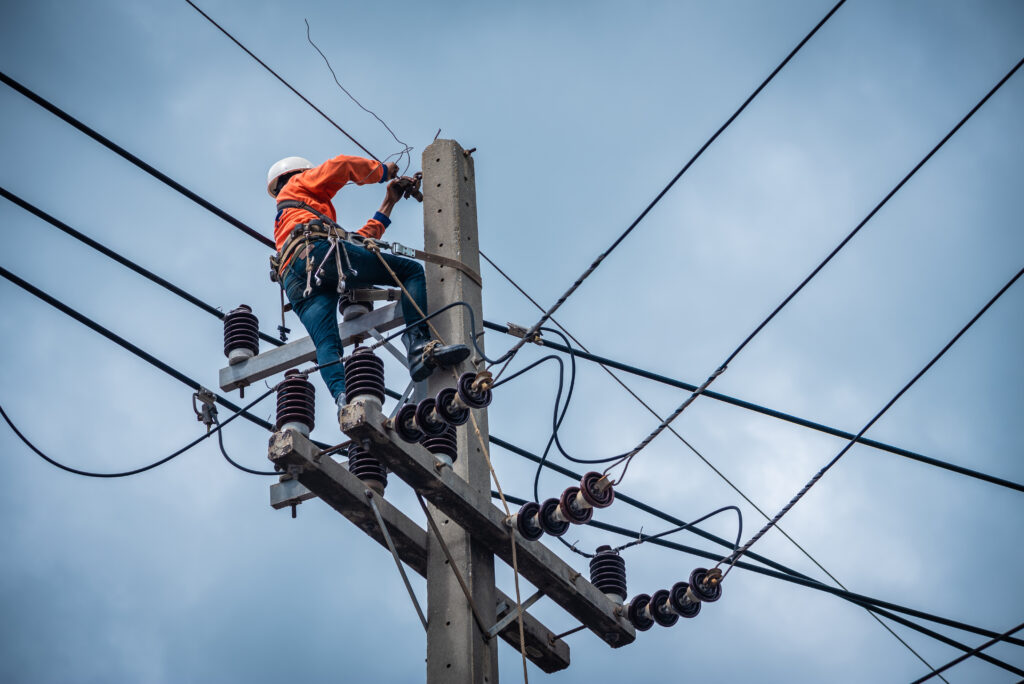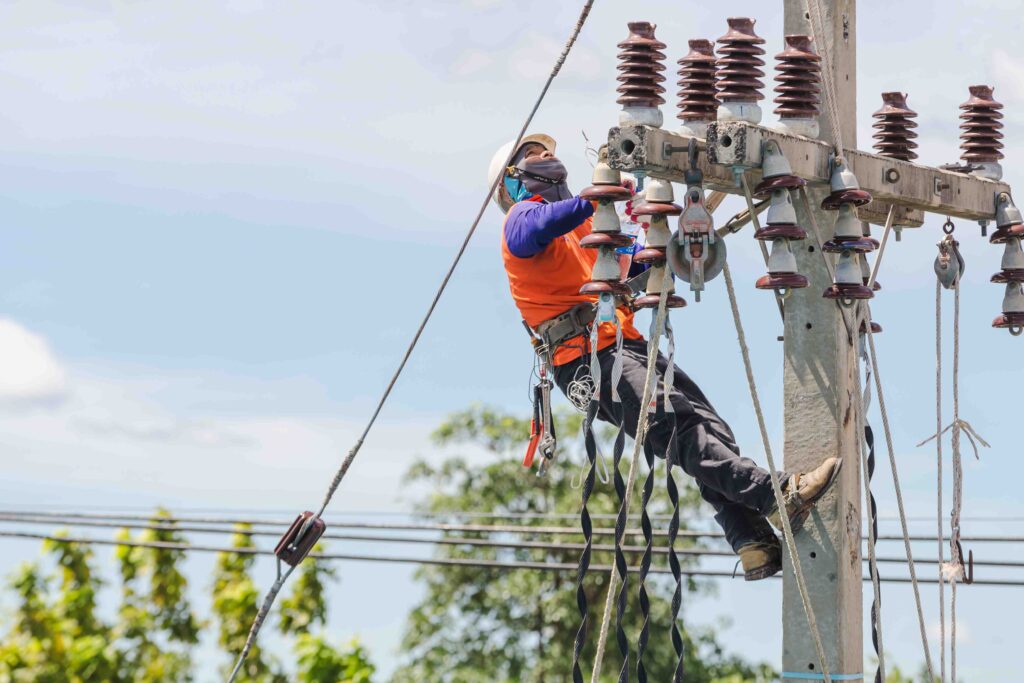Electrical linemen earn an average salary of about $75,000 per year. Pay varies based on experience, location, and employer.
Electrical linemen, known for their critical role in installing and maintaining power lines, command a strong salary due to the skilled nature of their work. Typically, they undergo extensive training, which can include apprenticeship programs, to master the techniques required for safely handling high-voltage lines.
Their compensation reflects the risks associated with working at heights and in various, often challenging, weather conditions. Job demand for linemen remains consistent, with the growth of infrastructure and the need for modernizing the power grid. Salaries can also increase with overtime during emergencies or after storms, where linemen are essential for restoring electricity. Those considering a career as an electrical lineman can expect a profession that not only pays well but also provides a sense of public service, keeping communities powered and connected.
The Importance Of Electrical Linemen
The work of electrical linemen is pivotal in our daily lives. These skilled professionals are the backbone of the electrical industry. They ensure our homes and businesses receive uninterrupted power supply. Their roles extend beyond connecting wires and poles. They contribute to the safety and efficiency of our electric grid. This makes their compensation a reflection of the value they bring to our communities.
Keeping The Lights On
Electrical linemen play a key role in keeping our lights on. Every day, they maintain and repair the vast networks that power our world. Without them, the convenience of modern electricity would not be possible. These technicians work tirelessly, often in extreme weather, to prevent outages. They also swiftly restore power when disruptions occur. This dedicated service demands fair compensation. It recognizes their continuous efforts to provide reliable electricity.
Risking Their Lives
Being an electrical lineman is not just another job. It is a vital and hazardous profession. These workers climb high poles and handle live wires, risking their lives daily. The dangers they face include:
- Falls from heights
- Electrical burns and shocks
- Extreme weather conditions
Every risk they take warrants a pay that parallels their courage and expertise. Society’s dependence on electricity makes their role crucial. As a result, their pay reflects the high stakes of their job, and offers incentives for future linemen to join the workforce.

Factors Affecting A Lineman’s Pay
Electrical linemen play a crucial role in keeping our lights on and power flowing. Their salaries, however, are not universal and can vary due to several elements.
Experience
More years, more dollars. It’s that straightforward for linemen. Beginners might start at a modest wage, but each year brings valuable skills. This experience translates into higher pay.
Geographic Location
Where you climb matters. Coastal cities or urban centers often offer more salary than rural areas. Local living costs heavily influence pay scales for electrical linemen.
Industry
Different sectors mean different pay. Linemen in utility companies might have a different salary than those in telecommunications. Some industries offer premium rates due to higher risks or demands.
Education And Certifications
Upgraded skills bring upgraded paychecks. Formal training can increase a lineman’s value. Certifications like a Class A Lineman or a Journeyman Lineman often boost salaries significantly.
Average Salary For Electrical Linemen
Curious about what electrical linemen earn? This vital profession comes with monetary perks that vary by location and industry. This section breaks down their pay. Let’s plug into the details.
National Average Salary
Across the United States, electrical linemen’s income reflects their crucial role. On average, electrical linemen earn about $72,000 annually. This figure can rise with experience, overtime, and special certifications.
Salary By State
Salaries for electrical linemen differ across states. Factors such as local demand and cost of living impact pay rates. Here’s a snapshot:
- California: High demand pushes salaries above $80,000.
- Texas: Competitive markets offer around $70,000.
- Florida: Steady employment leads to averages near $68,000.
Top Paying Industries
Not all industries pay the same. Some top-paying sectors for linemen include:
| Industry | Average Salary |
|---|---|
| Government | $76,000 |
| Utilities | $74,000 |
| Contracting | $72,000 |
Positions in government often come with higher pay and robust benefits. Utility and contracting roles also offer strong financial prospects.

Benefits Provided To Electrical Linemen
Electrical linemen often work in challenging conditions. In recognition of their hard work, many utilities and companies offer comprehensive benefits. This includes health insurance, robust retirement plans, paid time off, and critical safety equipment and training. These benefits ensure linemen are well-compensated and supported throughout their careers.
Health Insurance
One key benefit for electrical linemen is health insurance. Firms provide various plans that cover medical, dental, and vision expenses. This protection extends to their families. It often includes:
- Preventive care
- Emergency services
- Prescription drugs
Retirement Plans
To secure their future, electrical linemen gain access to retirement plans. Many companies match contributions to 401(k) or pension plans. These benefits can significantly increase the value of their retirement savings over time.
Paid Time Off
Paid time off is a vital benefit for rest and recovery. Linemen enjoy this perk which may include:
- Vacation days
- Sick leave
- Holidays
- Personal days
Safety Equipment And Training
Safety is paramount for linemen. Companies invest in advanced safety equipment and provide extensive training. Workers receive:
| Equipment | Training |
|---|---|
| Hard hats | Electrical safety |
| Gloves | First aid |
| Boots | Height safety |
Challenges In The Job
Considering a career as an Electrical Lineman? It’s essential to understand the challenges these brave souls face daily. Not only is their work critical to keeping our lights on, but it also comes with a unique set of demands and hazards. Here, we’ll delve into the real-world conditions that make this job one of the most respected—and arduous—in the trades.
Working Conditions
Electrical Linemen often battle the elements. Rain, snow, or blistering heat, linemen are out there. They climb high poles and work in confined spaces. This job is not for the faint of heart. The challenge is as mental as it is physical, requiring constant alertness.
Physical Demands
- Heavy lifting, sometimes over 50 pounds.
- Height work, maintaining balance on poles and towers.
- Stamina for long shifts, often in extreme conditions.
Hazardous Situations
Electrical work is inherently dangerous. High voltage lines can be lethal, and even a minor mistake can lead to disaster. Linemen must adhere to strict safety protocols to mitigate these risks, which adds another layer of stress to their workday.
Irregular Hours And Being On Call
Power outages don’t stick to a schedule. Linemen often work irregular hours, including nights, weekends, and holidays. Being on call means personal plans are frequently interrupted. This job demands a high level of dedication and flexibility.
Future Outlook For Electrical Lineman Jobs
The role of an electrical lineman remains vital in our society. As we look towards the future, the career outlook for electrical linemen is positive. With increasing energy demands and infrastructure upgrades, linemen are more essential than ever. Let’s explore this future landscape in more detail.
Projected Growth In Demand
Experts predict stable job growth for electrical linemen. The Bureau of Labor Statistics projects a 9% increase from 2020 to 2030. This growth rate is as fast as the average for all occupations. Communities depend on electricity, driving continuous need for linemen to maintain and expand power grids.
- Population growth fuels more construction.
- Cities modernizing their infrastructures need skilled linemen.
- Retiring professionals create job openings.
Awareness about stable careers in the trades can attract new talent. Young individuals seeking solid job perspectives can look towards lineman careers with confidence.
New Technologies And Skills Required
As technology advances, linemen must adapt. Renewable energy sources influence lineman careers. The integration of solar, wind, and other sustainable power sources onto the grid can require specialized training.
- Linemen need advanced safety knowledge.
- Smart grid technologies demand sophisticated skills.
- Drone usage for line inspections increases efficiency.
The expectations for electrical linemen include mastering new tools and concepts. Future linemen must embrace learning to stay ahead. Comprehensive training programs can prepare them for this evolving landscape.
Overall, the future looks bright for electrical linemen. With steady demand and opportunities to master new technologies, these jobs promise a rewarding career path.
Training And Education For Electrical Linemen
The journey to becoming an electrical lineman starts with focused training and education. Gaining the right skills ensures safety and efficiency on the job. Let’s look closer at the pathways future linemen take to spark their careers.
Apprenticeships
Apprenticeships provide hands-on experience essential for electrical linemen. These paid training programs combine on-the-job training with classroom instruction. An apprentice will work under experienced linemen, learning the trade from the ground up. Most apprenticeship programs last around four years and include:
- Safety practices to prevent job hazards
- Installation of electrical systems and maintenance skills
- High-voltage power lines understanding to manage risks
Once completed, apprenticeships lead to journeyman status and higher pay.
Vocational Schools
Many choose vocational schools for foundational lineman education. These specialized institutions teach necessary skills in a shorter time frame. Typical courses run for about one to two years. They offer:
- Electrical theory explained in simple terms
- Technical skills for modern electrical systems
- Climbing techniques critical for fieldwork
Graduates often move to apprenticeships or entry-level positions.
Continuing Education And Certifications
Certifications and continuing education keep linemen at the industry’s cutting edge. After initial training, many go for certifications such as the:
- Certified Electrical Safety Compliance Professional (CESCP)
- Certified Utility Safety Professional (CUSP)
These certifications demonstrate expertise and commitment to the field. Continuing education through seminars, workshops, and advanced courses is also critical. They ensure electrical linemen are updated on the latest:
- Technology advancements
- Safety regulations
- Industry best practices

Credit: www.linkedin.com
Frequently Asked Questions Of Electrical Lineman Pay
What Is The Highest Paid Type Of Lineman?
The highest paid type of lineman is typically an outside lineman or journeyman lineman working in areas with high demand and hazardous conditions, often involving overtime and emergency work.
Do Lineman Make 6 Figures?
Some experienced linemen may earn six-figure salaries, particularly those working overtime or in specialized, high-demand positions. Entry-level linemen typically earn less.
What Do Lineman Get Paid In Texas?
Linemen in Texas typically earn between $40,000 and $78,000 per year. Factors like experience and the employing company can influence their salary.
Are Lineman In High Demand?
Yes, linemen are in high demand due to the essential nature of their work in maintaining and expanding electrical and telecommunications infrastructure.
Conclusion
Understanding the compensation for electrical linemen is key for those considering a career in this field. Competitive salaries and benefits reflect the demanding nature of the job. Aspiring linemen can be optimistic about their financial prospects while contributing to our essential power infrastructure.
Let this guide aid you in navigating your potential earnings and career growth.


